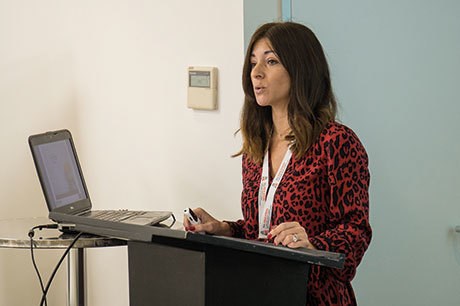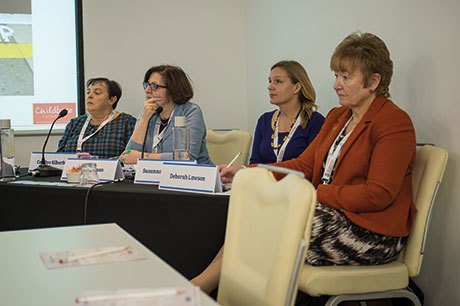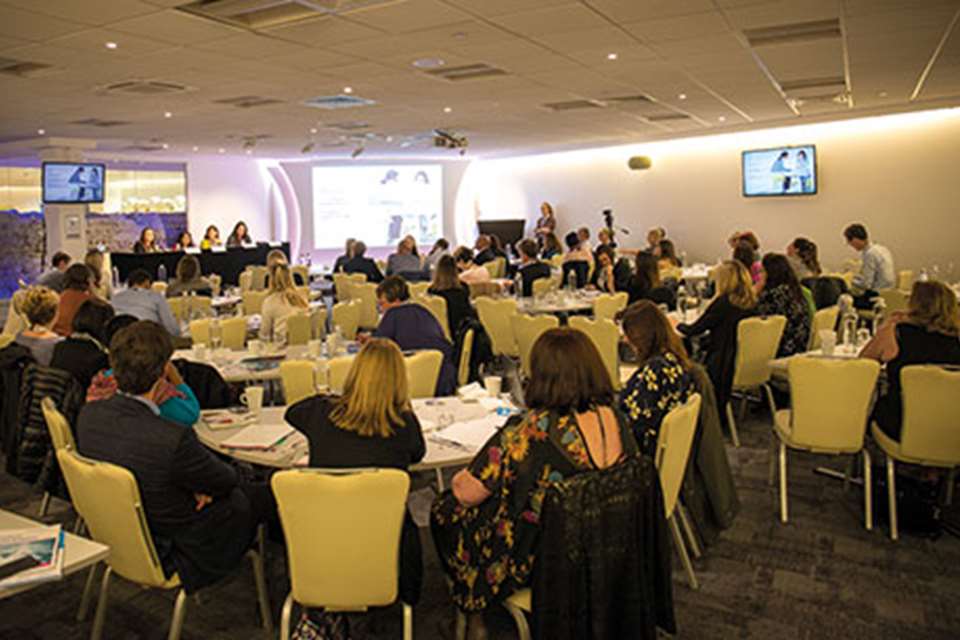Nursery World Business Summit - Train of thought
SponsoredMonday, December 10, 2018
How the sector can maintain the right training for graduates and staff was the theme of this Big Debate with Voice at Nursery World’s recent Business Summit. Karen Faux reports

Download the PDF of this article
A panel of four training experts came together with delegates for our Big Debate, ‘Early years workforce quality: how can the sector provide the best training for graduates and the wider staff team?’, in association with Voice, at the recent Nursery World Business Summit.
Introducing the session, chair Ruth Thomson, deputy editor of Nursery World, outlined the importance of getting to grips with different types of training that are currently required to boost quality in the sector and how continuing professional development can contribute to staff retention. With the Government back-pedalling on its commitment to increase the graduate workforce, there was also an interesting conversation to be had about the role of graduates.
Sarah Mackenzie, quality and training director for the Childbase Partnership, kicked the debate off by outlining the group’s innovative approach to training.
‘When we talk about continuing professional development we can’t ignore the elephant in the room,’ she said. ‘We know the sector is underfunded, and while we have a Workforce Strategy, it wouldn’t pass the two-year-old check!’
Ms Mackenzie stressed the importance of managers striving to develop their own strategies despite the lack of current Government investment. ‘This is about what we can do as providers. We can’t wait for the DfE to catch up. We need our colleagues to be learning.’
LISTENING TO STAFF
She believes the first step is to ask what staff want. ‘Everyone has a gap in their knowledge or experience. We listen to what staff are asking for, and their perception of what they think they need. It may be a case of looking at what staff joined the setting with and what they now need to deliver practice to the nursery’s high standard. It is important to be able to identify this.’

Ms Mackenzie flagged up Verity Campbell Barr’s study examining skills required by the early years workforce, which emphasised the employer’s role to ‘respect and take responsibility’ for training needs. Important training areas were identified by her as SEND, child development, the EYFS framework, working with parents, home learning and mental health.
‘Training needs are as diverse as our staff themselves,’ she said. ‘We find a lot of value in professional qualifications and in face-to-face training. It is important to deliver learning that does not affect staff’s work-life balance, or impact on the responsibilities of other staff. With this in mind we now offer two days of face-to-face training in December for everyone.’
Learning in bite-sized chunks and in short, sharp bursts can be a good approach. ‘New staff expect to learn through technology, and we have embraced this,’ Ms Mackenzie said. ‘We’re looking at how we can use gaming, social sharing, webinars and podcasts, and we’re helping staff to become an active part of their training.’
She advocated staff acquiring new experiences, both in and outside of their settings. ‘A picture will speak a thousand words; a setting visit can be inspirational, and hands-on experience is even more powerful,’ she said. ‘Our investment in taking staff abroad to gain practice experience has been phenomenal.’
BOOST RETENTION
While settings struggling to recruit and juggle their finances may not be in a position to prioritise training, the panellists felt it needed to be focused on as a long-term strategy.
Ms Mackenzie said, ‘Retention is notoriously hard at the moment and in an environment of underfunding, investment in training can feel difficult to justify. Some of that investment does walk out of the door and even right out of the sector. But training is the way to fix the leaky bucket, as the lack of it is often quoted as a reason to leave.’
This idea was taken up by panellist Deborah Lawson, general secretary of Voice. ‘Training is an investment, not a cost,’ she said. ‘In the absence of an early years pay scale, CPD for retention purposes is crucial. Retaining that joy and pleasure in the work is essential. Training is the way to show staff they are valued.
‘Having been in early years myself for 30 years, I understand there is a reliance on the goodwill of proprietors to address training needs, but the sector needs to be pushing for more than that.’

PACEY’s policy and research manager, Susanna Kalitowski, pointed to the Government’s move away from a commitment to raising qualification levels across the sector. She corroborated that training was essential to ensure practitioners felt confident and motivated to do a good job on a day-to-day basis.
‘We are seeing a decline in Level 3 staff and graduates,’ she said. ‘Only 595 students enrolled in 2017-18 to become Early Years Teachers, while there were 860 in 2014-15.
‘In the face of these trends we need to look at how we can keep practice strong and how we can reform career pathways. We also need to have a wider debate on the role of early years in society and the need for proper funding.’
MORE GRADUATES
The problem of a clear career pathway, and the impact this has on graduates in particular, was picked up by panellist Carolyn Silberfeld, chair of the Early Childhood Studies Degree Network. She emphasised the importance of having graduates in the skills mix and said that while healthy numbers of candidates were coming through to undertake the Early Childhood Studies (ECS) degree, not enough were following up with a childcare career.
‘The majority of Early Childhood Studies graduates go into professional programmes such as teaching or retail. This is just not how it should be,’ she said.
‘One of the ways we are looking to strengthen the career potential of the programme is to introduce competencies at Level 6, so that graduates have a level of practical experience that is higher than Level 3. We’ve worked in a collegial way to develop and assess practice competencies awarded at Level 6. These can be embedded as a pathway option into the ECS degree, and higher education institutions can award Early Childhood Graduate Practitioner to students who meet all the competencies. We are already getting some good data from early adopters.’
One delegate raised the point that the move towards in-house training meant practitioners lacked a broader perspective. ‘It’s so important to discover other ways of working and to be inspired by other people’s practice,’ she said. ‘We are seeing a reduction in time available for training and new experiences, and this is reflected in the placement hours initially proposed for the new T-Levels which are far below the current Level 3.’
Another delegate said T-Levels were a worrying development. ‘The lack of placement hours is a big issue and the sector needs to respond. We need to send out a message that face-to-face learning is important.’
Ms Mackenzie agreed, ‘We want staff to have a choice in the different kinds of training they access, whether it is face-to-face, online or blended learning. Individuals will then be in a position to choose what works best for them.’
Reiterating her key message, she said: ‘Investment in knowledge always pays the best interest.’
MAIN POINTS
- Managers must develop their own training strategies in the face of a lack of Government investment
- Training can play a vital part in staff retention
- The declining number of Level 3 practitioners and graduates needs to be addressed
- Training needs to give practitioners a broader perspective
 MORE INFORMATION
MORE INFORMATION
The Big Debate ‘Early years workforce quality: how can the sector provide the best training for graduates and the wider staff team?’, in association with Voice, took place at Nursery World’s Business Summit (www.nurserybusiness-summit.com). For more info about events, email tom.curtiss@markallengroup.com






